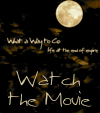“Oil depletion and climate change will create an entirely new context in which political struggles will be played out. Within that context, it is not just freedom, democracy, and equality that are at stake, but the survival of billions of humans and of whole ecosystems.”
Richard Heinberg is an American journalist and educator who has written extensively on ecological issues, including oil depletion. He is the author of nine books, including The Party’s Over: Oil, War, and the Fate of Industrial Societies (2003), Powerdown: Options and Actions for a Post-Carbon World, The Oil Depletion Protocol: A Plan to Avert Oil Wars, Terrorism and Economic Collapse (2006), and Peak Everything: Waking Up to the Century of Declines (2007). His newest book, Blackout: Coal, Climate, and the Last Energy Crisis was published in June, 2009.
Heinberg, after two years in college and a period of personal study, became personal assistant to Immanuel Velikovsky in November 1979 and after Velikovsky’s death assisted Mrs. Velikovsky editing manuscripts. He published his first book in 1989, Memories and Visions of Paradise: Exploring the Universal Myth of a Lost Golden Age, which was the result of ten years of study of world mythology. An expanded second edition was published in 1995. His next book was published in 1993: Celebrate the Solstice: Honoring the Earth’s Seasonal Rhythms through Festival and Ceremony.
In June 1995, speaking to the International Society for the Comparative Study of Civilizations in Dayton, Ohio, Heinberg provided “A Primitivist Critique of Civilization” and discussed the ways in which “We are, it would seem, killing the planet.”
His books from the later 1990s address the relationships between humanity and the natural world. In 1998 he began teaching at New College of California. In 2004, Heinberg provided the closing address for the First US Conference on Peak Oil and Community Solutions. His title was “Beyond the Peak.”
In February 2007 Heinberg addressed the Trade Committee of the European Parliament and served as an advisor to the National Petroleum Council in its report to the U.S. Secretary of Energy on Peak Oil. In October 2007 he addressed members of the New Zealand Parliament. In 2008 he was a Mayor’s appointed member of the Oil Independent Oakland 2020 Task Force (Oakland, California), which was convened to chart a path for the city to dramatically reduce its petroleum dependence.
Heinberg is now the Senior Fellow of the Post Carbon Institute in Santa Rosa, California. He lives in Santa Rosa, California and was a core faculty member of New College of California until the college closed in March, 2008. He taught a course on Culture, Ecology and Sustainable Community. He is also a violinist, illustrator and book designer. He is married to Janet Barocco.
Heinberg has proposed an international protocol to peak oil management with the aim of reducing the impact of the arrival of the peak. The adoption of the Protocol would mean that oil-importing nations should deal to reduce their importations in an annual percentage, while exporting countries should deal to reduce their exportations in the same percentage. The Uppsala Protocol has been focused in a similar direction.
Heinberg is the editor of Museletter, which has been included in Utne Magazine’s annual list of Best Alternative Newsletters. He has appeared in the documentaries The End of Suburbia, The 11th Hour, Crude Impact, Oil, Smoke & Mirrors, Chasing God, The Great Squeeze, The Power of Community: How Cuba Survived Peak Oil, A Farm for the Future and Ripe For Change.
Heinberg was featured in the 2007 documentary What a Way to Go: Life at the End of Empire. (From the Wikipedia entry.)





